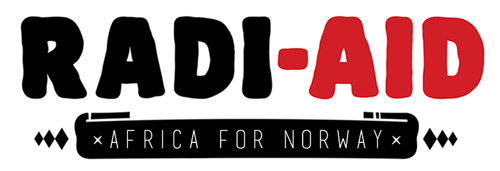RADI-AID FOR CORPORATIONS
What responsibility does corporations have in terms of telling nuanced stories about the world and their work with social responsibilities?
Through the media and the aid sector, audiences are often presented with a one sided and oversimplified depiction of countries and people in the global South. The narrative is often centered around unfortunate individuals in need of monetary assistance. This perpetuates the Western stereotypical perception of developing countries and reinforces the so called “white savior” mind set. Our wish is for stories to be shared through the voices of those who are being portrayed, that stories focus more on how individuals are working to better their own situation, and for a more nuanced portrayal of local contexts. The Radi-Aid project has sparked debate about this through the years and, in some cases, we notice that practices are changing.
It is becoming frequently more common that corporations are also taking on social responsibilities in different areas. This year’s Radi-Aid campaign «Africa Corp.» is therefore targeted towards the business world. There are many good initiatives for corporate social responsibility both in Norway and internationally, but the way they operate and communicate varies greatly. Oftentimes we see that companies in rich nations give aid to poorer nations through products and service delivery, rather than via sustainable and locally anchored alternatives. We encourage corporations working with social responsibility to seize the opportunity to show that business and innovation can contribute positively to development, by communicating and sharing examples of creativity, invention and sustainable progress in the contexts and projects they work with in the global South.
Another important element is for corporations to consider how their social responsibility initiatives can best align with their existing work. If a company is making efforts to influence positive change through their social responsibility work – for example around environmental protection, other operations of that company should follow the same principles. This point is often made by John Ruggie, a pioneer researcher of human rights-based approaches to corporate social responsibility. A rule of thumb for corporations engaging with social projects is to focus on rights of societies and citizens, rather than emphasizing their needs and challenges.
In light of the above, we have made a checklist that companies can use to ensure that their corporate social responsibility projects are based on sound principles and values and are communicated in a good manner.
Radi-Aid’s checklist for communicating corporate social responsibility initiatives:
Don’t cast yourself in the leading role! You might be tempted to focus on your company’s own engagement in the social responsibility projects. However, this way you could easily fall into the trap of taking on the “white savior” role – coming to save Africans who can’t help themselves.
Give local voices and communities ownership in the communication of your projects. Portraying recipients of corporate aid as passive people in need of saving is problematic and reinforces the perception that only countries in the West have the solutions.
Be creative! The world has seen a lot of fundraising videos for poor and sick children, so how about changing it up by profiling good local projects, using humor, or focusing on solutions rather than problems?
Ask yourself control questions! This can be useful to avoid stereotyping. What if this was me or my children? How would I be comfortable being portrayed? Are people depicted in a dignified way, or are we magnifying some elements based on our own desire to show ourselves as compassionate?
Think about why you want to work with social responsibility initiatives and which partnerships and project you engage with. Is there a clear connection to the existing work of your company? Do the projects spring from a genuine desire to engage with development and influencing change? Or is the motivation about attracting customers? The main thing is that there is an expressed need and interest from citizens on the ground and that local voices are heard and active in the partnership.
Some useful references:
The UN’s guiding principles on Business and Human Rights (UNGP) gives a thorough introduction to how human rights should be at the center of business operations and approaches.
UN Global Compact (UNGC) has ten principles for responsible behavior in business agreed upon by the 193 member states of the UN and is used by UNGC in over 10000 member corporations.
The OECD guidelines for Multinational Companies are quite broad and outline recommendations and expectations for corporate social responsibility work.
Global Reporting Initiative (GRI) gives advice around accountability and sound reporting of corporate social responsibility.







